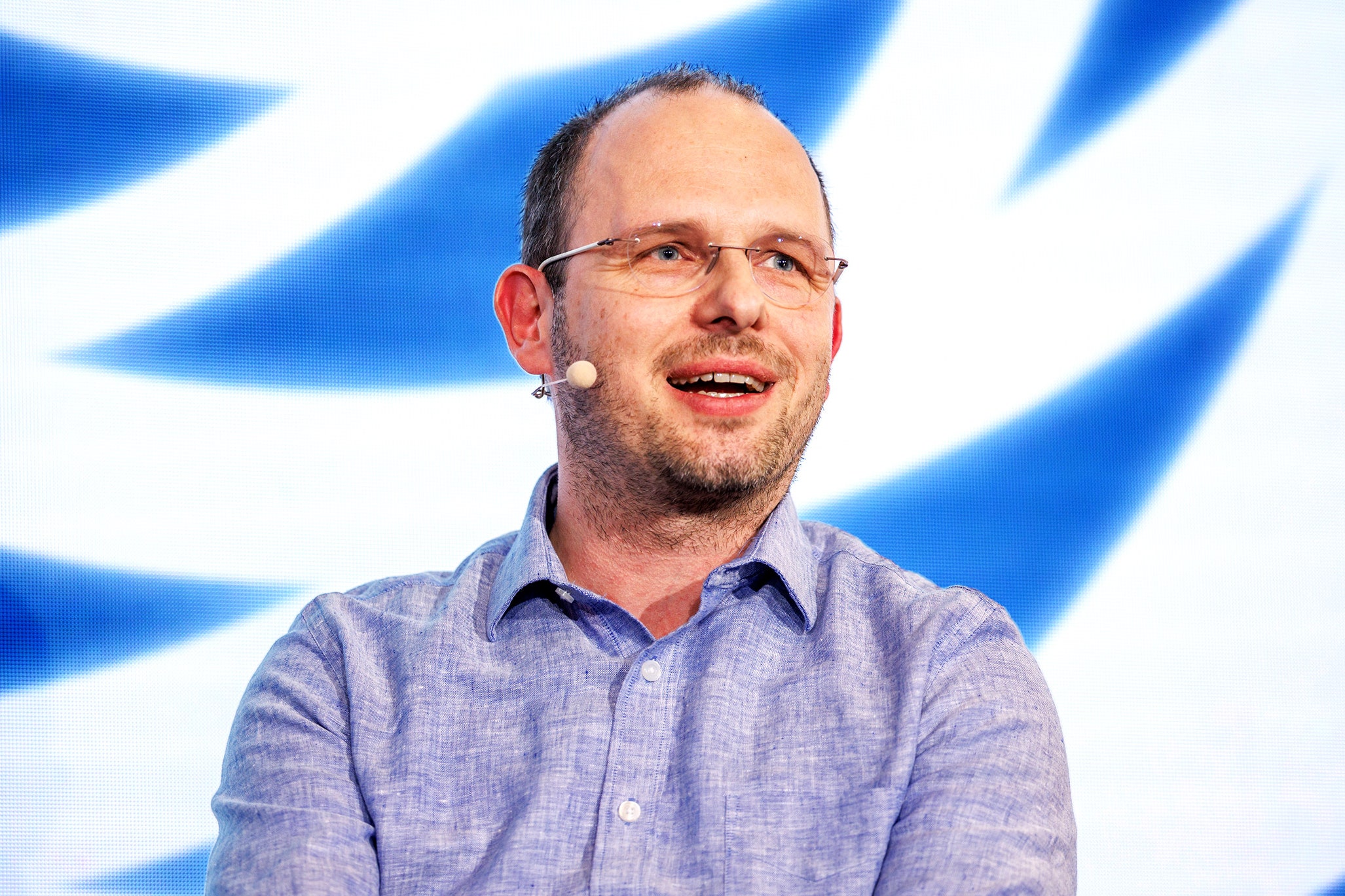AI Is Rewiring Coders’ Brains. Yours May Be Next
Many people—like, say, journalists—are understandably antsy about what generative artificial intelligence might mean for the future of their profession. It doesn’t help that expert prognostications on the matter offer a confusing cocktail of wide-eyed excitement, trenchant skepticism, and dystopian despair.
 Some workers are already living in one potential version of the generative AI future, though: computer programmers.
“Developers have arrived in the age of AI,” says Thomas Dohmke, CEO of GitHub. “The only question is, how fast do you get on board? Or are you going to be stuck in the past, on the wrong side of the ‘productivity polarity’?”
Dohmke says the latest usage data from Copilot shows that almost half of all the code produced by users is AI-generated. At the same time, he claims there is little sign that these AI programs can operate without human oversight. “There’s clear consensus from the developer community after using these tools that it needs to be a pair-programmer copilot,” Dohmke says.
Copilot’s power is in how it abstracts away complexity for a programmer trying to work through a problem, Dohmke says. He likens that to the way modern programming languages hide fiddly details that earlier, lower-level languages required coders to wrangle. Dohmke adds that younger programmers are particularly accepting of Copilot, and that it seems especially helpful in solving novice coding problems. (This makes sense if you consider that Copilot learned from reams of code posted online, where solutions to beginner problems outnumber examples of abstruse and rarified coding craft.)
“We’re seeing the evolution of software development,” Dohmke says.
None of that means demand for developers’ labor won’t be altered by AI. GitHub research in collaboration with MIT shows that Copilot allowed coders faced with relatively simple tasks to complete their work, on average, 55 percent more quickly. This increase in productivity suggests that companies could get the same work done with fewer programmers, but companies could use those savings to spend more on labor in other projects.
Even for non-coders, these findings—and the rapid uptake of Copilot—are potentially instructive. Microsoft is developing AI Copilots, as it calls them, designed to help write emails, craft spreadsheets, or analyze documents for its Office software. It even introduced a Copilot key to the latest Windows PCs, its first major keyboard button change in decades. Competitors like Google are building similar tools. GitHub’s success might be helping to drive this push to give everyone an AI workplace assistant.
“There's good empirical evidence and data around the GitHub Copilot and the productivity stats around it,” Microsoft’s CEO, Satya Nadella, said on the company’s most recent earnings call. He added that he expects similar gains to be felt among users of Microsoft’s other Copilots. Microsoft has created a site where you can try its Copilot for Windows. I confess it isn’t clear to me how similar the tasks you might want to do on Windows are to the ones you do in GitHub Copilot, where you use code to achieve clear objectives.
There are other potential side effects of tools like GitHub Copilot besides job displacement. For example, increased reliance on automation might lead to more errors creeping into code. One recent study claimed to find evidence of such a trend—although Dohmke says that it reported only a general increase in mistakes since Copilot was introduced, not direct evidence that the AI helper was causing an increase in errors. While this is true, it seems fair to worry that less experienced coders might miss errors when relying on AI help, or that the overall quality of code might decrease thanks to autocomplete.
Given Copilot’s popularity, it won’t be long before we have more data on that question. Those of us who work in other jobs may soon find out whether we’re in for the same productivity gains as coders—and the corporate upheavals that come with them.
Some workers are already living in one potential version of the generative AI future, though: computer programmers.
“Developers have arrived in the age of AI,” says Thomas Dohmke, CEO of GitHub. “The only question is, how fast do you get on board? Or are you going to be stuck in the past, on the wrong side of the ‘productivity polarity’?”
Dohmke says the latest usage data from Copilot shows that almost half of all the code produced by users is AI-generated. At the same time, he claims there is little sign that these AI programs can operate without human oversight. “There’s clear consensus from the developer community after using these tools that it needs to be a pair-programmer copilot,” Dohmke says.
Copilot’s power is in how it abstracts away complexity for a programmer trying to work through a problem, Dohmke says. He likens that to the way modern programming languages hide fiddly details that earlier, lower-level languages required coders to wrangle. Dohmke adds that younger programmers are particularly accepting of Copilot, and that it seems especially helpful in solving novice coding problems. (This makes sense if you consider that Copilot learned from reams of code posted online, where solutions to beginner problems outnumber examples of abstruse and rarified coding craft.)
“We’re seeing the evolution of software development,” Dohmke says.
None of that means demand for developers’ labor won’t be altered by AI. GitHub research in collaboration with MIT shows that Copilot allowed coders faced with relatively simple tasks to complete their work, on average, 55 percent more quickly. This increase in productivity suggests that companies could get the same work done with fewer programmers, but companies could use those savings to spend more on labor in other projects.
Even for non-coders, these findings—and the rapid uptake of Copilot—are potentially instructive. Microsoft is developing AI Copilots, as it calls them, designed to help write emails, craft spreadsheets, or analyze documents for its Office software. It even introduced a Copilot key to the latest Windows PCs, its first major keyboard button change in decades. Competitors like Google are building similar tools. GitHub’s success might be helping to drive this push to give everyone an AI workplace assistant.
“There's good empirical evidence and data around the GitHub Copilot and the productivity stats around it,” Microsoft’s CEO, Satya Nadella, said on the company’s most recent earnings call. He added that he expects similar gains to be felt among users of Microsoft’s other Copilots. Microsoft has created a site where you can try its Copilot for Windows. I confess it isn’t clear to me how similar the tasks you might want to do on Windows are to the ones you do in GitHub Copilot, where you use code to achieve clear objectives.
There are other potential side effects of tools like GitHub Copilot besides job displacement. For example, increased reliance on automation might lead to more errors creeping into code. One recent study claimed to find evidence of such a trend—although Dohmke says that it reported only a general increase in mistakes since Copilot was introduced, not direct evidence that the AI helper was causing an increase in errors. While this is true, it seems fair to worry that less experienced coders might miss errors when relying on AI help, or that the overall quality of code might decrease thanks to autocomplete.
Given Copilot’s popularity, it won’t be long before we have more data on that question. Those of us who work in other jobs may soon find out whether we’re in for the same productivity gains as coders—and the corporate upheavals that come with them.